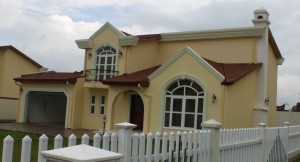One of the challenging tasks in construction of your house plans in Kenya is the fact that you will require to seek approvals from relevant statutory authorities. These statutory authorities are charged with the responsibility to ensure that every building that comes up within their jurisdiction attains certain specific design standards that they have set in relation to the national Building Code. Such design standards that they enforce are with regard to zoning regulations, building structural stability, building occupancy and design adequacy, all of which affect human health and well being within the built environment.
Why are approvals for House Plans in Kenya necessary

House plans in Kenya have to be properly approved by Statutory Authorities.
It is inevitable that developers at different levels of construction ability will come up with varying types of buildings as they seek to develop their properties. In order to rationalize this, it becomes imperative that local authorities create standards that shall govern the kind of built development that one can achieve when building house plans in Kenya. In addition, local regulations also stipulate the type of internal environment that the building can have. This has an impact on the allowable finishes that one can utilize on the inside of a habitable unit, and also has ramifications on the minimum standards of space that one is allowed to construct.
With these factors in mind, municipal authorities throughout the country have stepped up their efforts to ensure that every developer creates buildings that are properly conceived in tandem with their building standards. Every building is supposed to go through a rigorous approval process with regard to municipal authority rules, and even more so in the wake of failed buildings that were erroneously put up by rogue developers and contractors. Municipal authorities have imposed various regulations governing approval of construction of even the most mundane elements in the construction industry, with approval regulations in force for undertaking even painting of an external wall. Internal refurbishments and partitioning also requires approvals to be granted prior to being undertaken. Various fees are chargeable for different aspects of work and regarding building requirements. Some of these elements that municipal authorities charge for building house plans in Kenya include fees for
- inspection of building plans,
- occupation certificate fees,
- Infrastructure development levy in large councils.
- Charges for construction signage and associated fees.
Various departments are involved with the approval processes within most of the municipal councils. There are basic requirements that they have in each of them, and each checks the relevant parts of zoning requirements or building codes that relate to them. The main departments that one is likely to encounter in the process of seeking approvals includes
- Physical planning department – this deals with zoning and large scale planning regulations, and ensures that a proposed development is in conformity to the allowable building types for an area, as well as observes the relevant rules regarding building setbacks, road reserves, plot coverages and plot ratios.
- Roads and sewerage departments deal with civil works-oriented types of approval, especially with regard to planning of roads and verification of sewer provisions in large estate developments and similar master plans.
- Health department deals with internal provisions as relates to human comfort within habitable rooms. They scrutinize provisions for house plans in Kenya with regard to ventilation, room sizes, drainage systems, and similar provisions.
- Fire department seeks conformity with allowable fire safety provisions, especially regarding multiple dwelling units and office blocks.
- Factories and Industrial Departments are involved with approvals of large industrial facilities such as factories, godowns and any buildings in which industrial and manufacturing processes are likely to be undertaken.
Various municipal councils may have different classifications and names for these departments but their functions are broadly similar across the board. One may find that in the course of seeking a particular kind of approval, certain departments may be involved while others are not.
The process of approval of house plans in Kenya generally goes through these departments who look for aspects of the design that relate to their discipline. Once all these departmental sections are satisfied, they append their certified stamp on the drawings and move the plans to the next stage until all stages are done. The onus is on the developer though to continue to liaise with the council departments to obtain status reports of the progress of approvals, and any modifications to approval drawings that may be necessary.
Thereafter, the drawings are then subjected to a final approval committee meeting whereby they are formally approved, and letters of approval are issued thereafter. This main approval committee is usually chaired by the director of the planning section of the municipal council and occurs regularly, usually fortnightly.
It is wise to allocate sufficient time in project timelines for approvals to be undertaken. Should a project not have sufficient timelines for approval, there may be major challenges in its implementation as the process of seeking building approvals can be lengthy at times. It is worth noting that failure to obtain building approvals can lead to unforeseen issues on a project, including unwarranted demolitions by municipal authority officials or a building project being halted, including criminal action being taken against a developer.
Any developer ought to seek all necessary municipal approvals if they are interested in developing house plans in Kenya.


Leave A Comment